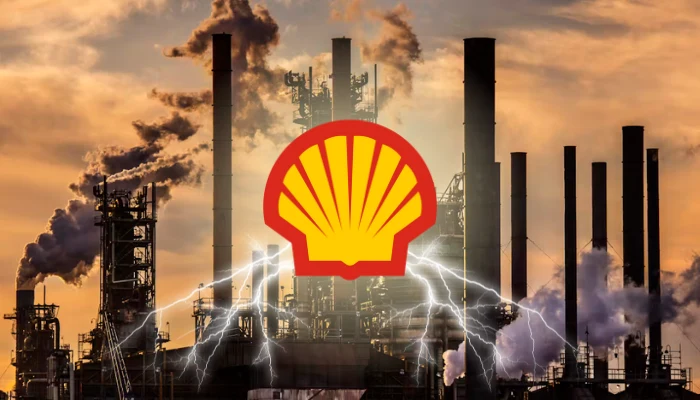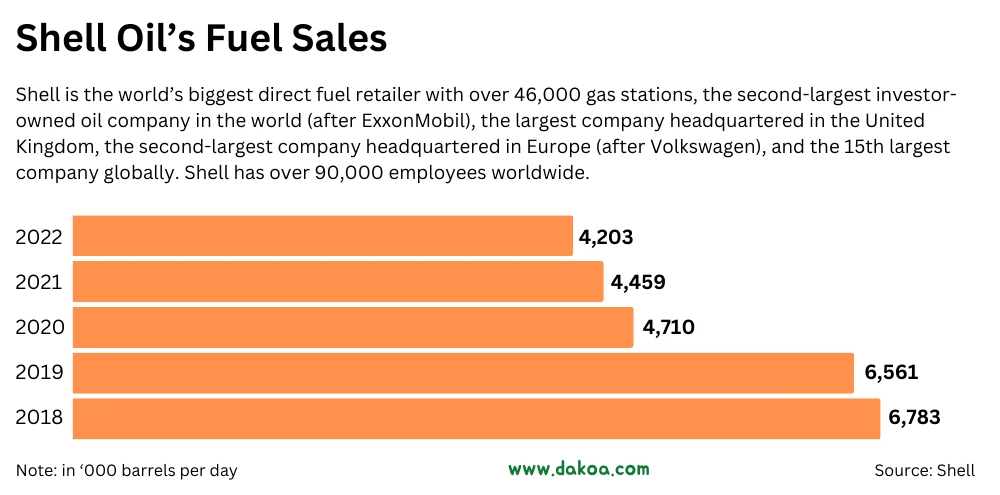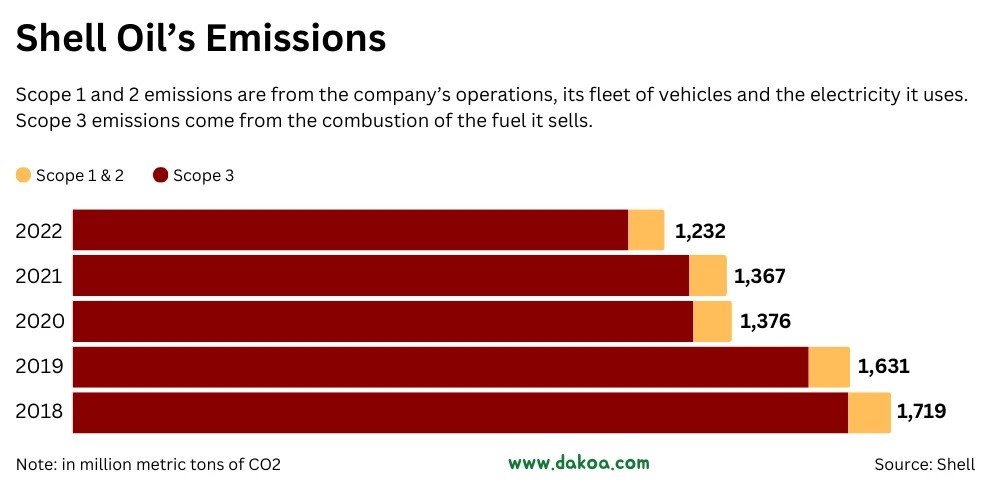Shell is making changes to its climate targets. The company has decided to soften its goal for reducing carbon emissions by 2030. They’ve also removed a goal set for 2035. Shell says it’s because they expect to sell less power but see a high demand for gas. Despite this, they still aim to have no net emissions by 2050.
CEO Wael Sawan is reshaping Shell’s strategy. The focus? Profitable projects, keeping oil production steady, and increasing natural gas production. This move is to make more money for the company.
This isn’t new for the oil and gas industry. Companies often promise to fight climate change, but then don’t follow through. Fossil fuels are a big reason for the climate crisis. Scientists say we need to greatly reduce emissions soon.
BP, another oil giant, did something similar last year. They went back on some of their promises after investors pushed them to earn more.
Shell’s Updated Climate Plan
Shell shared its new plan on Thursday. They now aim to cut the carbon intensity of their products by 15-20% by 2030 from 2016 levels. Before, they wanted a 20% cut.
Carbon intensity is about how much carbon is in the energy they sell. Shell could sell more fossil fuels but still meet this target if they also sell renewables or use carbon offsets.
Shell sees natural gas, especially liquefied natural gas, as important. It’s less polluting than coal, they argue. But they expect to sell less renewable energy than they thought before.
Shell dropped their goal to cut carbon intensity by 45% by 2035. They plan to sell more energy to businesses and less to everyday people. This shift means they think they’ll sell less energy overall by 2030. So, they updated their carbon intensity target.
Still, Shell has a new goal. They want to cut emissions from products like gasoline and jet fuel by 15-20% by 2030, compared to 2021.
They’re also sticking to a plan to cut emissions from their own operations by half by 2030. They’ve already cut more than 60%.
To save money, Shell is cutting jobs, including in its low-carbon division. They’re selling some businesses and leaving others. For example, they’re selling their solar assets in the US and thinking about what to do with their big complex in Singapore. They’re also closing a refinery in Germany and leaving Nigeria’s onshore oil business.
In 2023, Shell made $28 billion, mostly from selling liquefied natural gas and oil. That’s 30% less than the year before, but still a lot of money.
Shell’s Recent Environmental Commitment Changes
- 2030 Carbon Intensity Reduction Goal Adjustment: Shell aimed to reduce the net carbon intensity of its energy products by 20% by 2030 compared to 2016 levels. They’ve revised this target to a 15-20% reduction.
- 2035 Carbon Intensity Target Scrapped: Originally, Shell had set a goal to reduce its carbon intensity by 45% by 2035. This target has now been removed.
- Focus Shift: Shell’s strategy has shifted towards prioritizing “value over volume in power,” leading to a revised focus on selling more power to commercial customers and less to retail customers, impacting growth expectations for power sales by 2030.
- New 2030 Emissions Reduction Ambition: Despite the backtracking on some goals, Shell introduced a new ambition to reduce overall emissions from oil products, such as gasoline and jet fuel sold to customers, by 15-20% by 2030 compared to 2021.
- Maintaining Operations Emissions Target: Shell remains committed to halving emissions from its own operations (Scope 1 and 2) by 2030 and reports over 60% progress toward this target.
Criticism and Challenges
More To Discover
- Sustainable or Not? The Controversy Over Gear Used in MSC-Certified Tuna Fishing
- Consumer Reports Uncovers Widespread Harmful Chemicals in Supermarket Foods, Including Top ‘Healthy’ Brands
- Vanished Giant Returns: California’s Lost Lake Reemerges After 130 Years
- Sustainable Circuit Boards That Turn to ‘Jelly’ for Effortless Recycling
Mark van Baal from the activist shareholder group Follow This didn’t hold back his thoughts on Shell’s new direction. He directly stated, “with this backtrack, Shell bets on the failure of the Paris Climate Agreement, which requires almost halving emissions this decade.”

Shell is also fighting a court ruling in the Netherlands. The court said Shell must reduce its emissions faster.





















